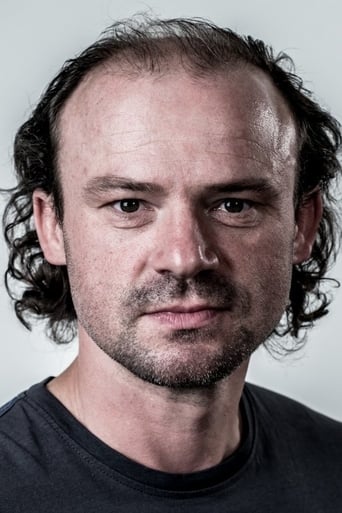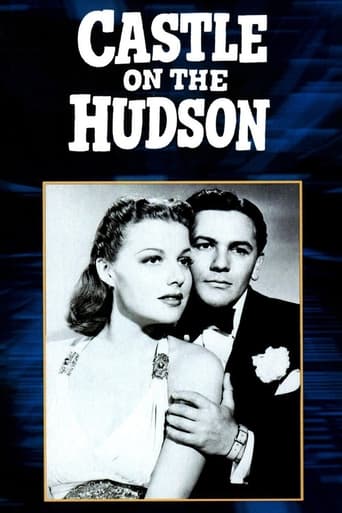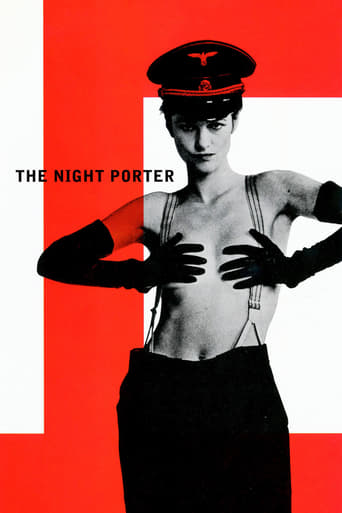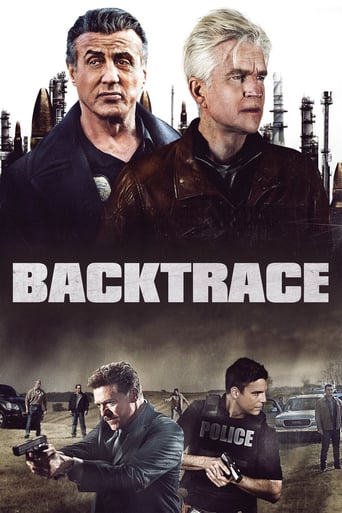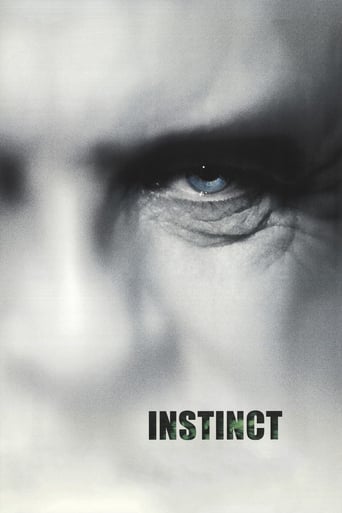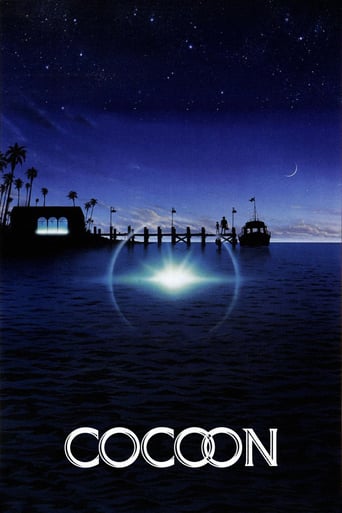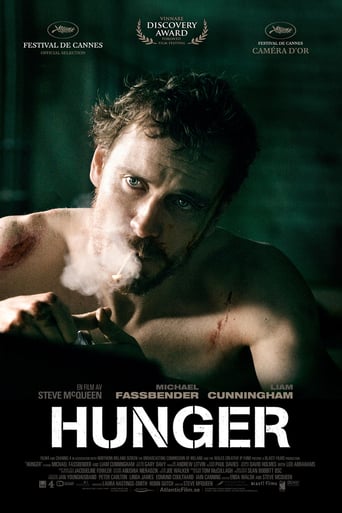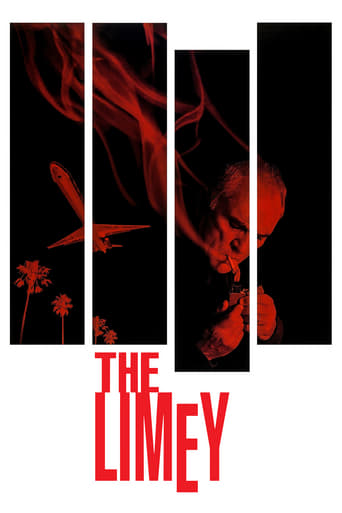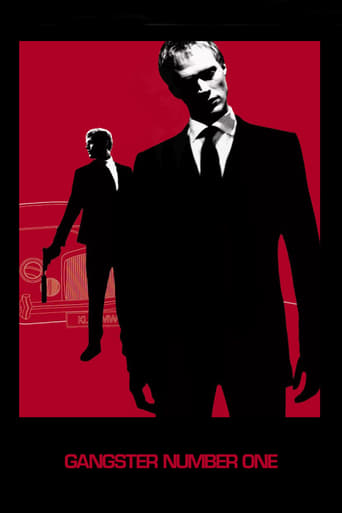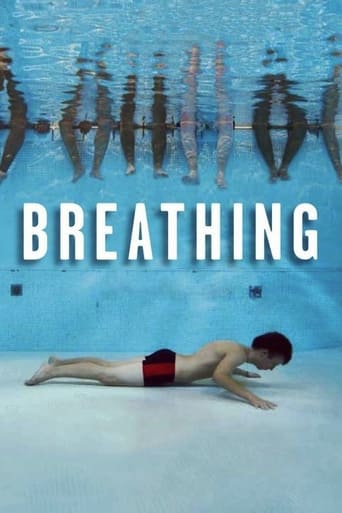
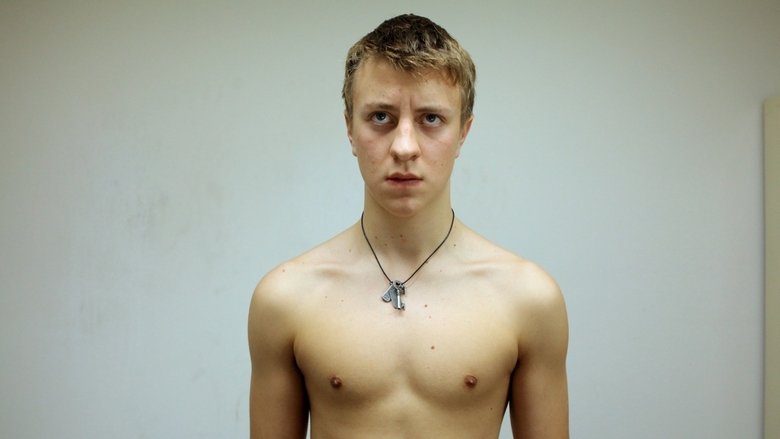
Breathing (2011)
Through his work at a morgue, an incarcerated young man trying to build a new life starts to come to terms with the crime he committed.
Watch Trailer
Cast


Similar titles
Reviews
The themes of life and death and brilliantly elaborated through breath and suffocation. It is no accident that the film name is "Breathing".Through the use of recurring themes to elaborate on psychological drama this movie strongly reminded me of the also very good "Don't Look Now" http://www.imdb.com/title/tt0069995/ where red, the color of blood, water and fall are in a constant interplay with the ideas of life, death and sorrow.In this case breathing means life, and deep in the swimming pool is the perfect place to evade from it, to leave it outside. By spending a good deal of time there you can quit life for good. But no.This young taciturn boy, who for the lack of meaningful ties contacts didn't learn how to express himself, carries on. It is the power of the indomitable human spirit that in spite of mounting difficulties and tons of hesitation doesn't quit.He was raised in an orphanage and the lack of support is there to be seen almost every time. It is there when he is deep down in the pool, or when he cries. Boys don't cry, even more so in prison.He has to make amendments. He does time for killing a boy - who was trying to suffocate him - and also his mother he only gets to know aged 19. It is a lot to do for something lacking the proper tools, but intentionally or not, the work at a mortuary helps him deal with his own suicidal impulses and the death he caused.It is an overall sad movie, but also an inspiring one about how life can prevail. Kroger, the boy, speaks very little through this piece but that doesn't make his acting any less convincing or expressive. Thumbs up for the director, too, who pull a seamless and very aesthetic work.
Unsurprisingly another very good foreign movie, this time a German production, "Atmen" ("Breathing"). Directed keenly by Karl Markovics, the movie is subtle, quiet, and reflective with an excellent touch. Performances were excellent and dialog was believable. Lead young actor Thomas Schubert follows the excellent direction and gives a quietly strong performance. One of the things I enjoyed is the storytellers went away from making the juvenile too edgy or loud. Rather he is contemplative and slowly remorseful, and yet human enough to overstep boundaries and sometimes challenge authority. This movie is a winner, and one of the better I've seen. Recommended 8/10
In the Buddhist tradition, breathing grounds us in the present moment. According to Zen master Thich Nhat Hanh, "Breathing opens the door to stopping and looking deeply in order to enter the domain of concentration and insight." For Roman Kogler (Thomas Schubert) in Karl Markovics remarkable debut film Breathing, it is simply the means to avoid suffocating in a world in which, even at the age of nineteen, he has already suffered many losses. Written and directed by Austrian actor Karl Markovics (The Counterfeiters) and winner of the best film award at Directors' Fortnight in Cannes last year, Breathing is the story of a sullen young man waging a lonely battle to recover his selfhood.Having grown up in an orphanage after being abandoned by his mother (there is no mention of his father), Roman has spent the last five years of his life in a juvenile-detention center for the killing of a young bully. "I didn't murder him, he died in hospital," he proclaims. Taciturn to the point of mute, Roman does not know much about life outside the confines of his protective but non-stimulating environment. His life consists of reading travel magazines, smoking, sleeping, and swimming. Even when he is swimming, he is alone. The other boys line up outside the pool and wait for him to get out. Hesitant and afraid, he masks his fear with a swagger, but no one is fooled.To have a chance at getting out, Roman is told by his parole officer that he must show that he can hold a steady job. Let go from his tryout as a welder because he refused to wear a helmet, he is hired to be a mortuary attendant after answering an ad, but emotionally he is barely distinguishable from the corpses and is treated shabbily by his robot-like co-workers who know he is in detention. He hangs on, however, knowing that this may be his last chance for parole. Slowly, he learns how to perform better at his job and the negative attitude of the harshest co-worker changes to one of support, depicted in a tender sequence where they wash and dress the body of an older woman together while her daughter waits outside the room.Every day, Roman must get up at the crack of dawn to take the train into Vienna where he passes by a huge billboard advertising a vacation that ironically implores us to "dive into adventure." When he returns each evening, he has to undergo a humiliating strip search. Something finally clicks for him when he deals with a corpse who has his same last name. Suddenly motivated, he tracks down his mother (Karin Lischka) to confront her about the reason she gave him up at birth. When she tells him that "it was the best thing I ever did in my life," he is understandably stunned. Though the mood of the film is mostly solemn, there is a lovely scene on the subway where a young American girl sits next to Roman and they share a beer together (which he is not allowed to do).Though he knows he will never see her again, it is the first time he has smiled during the movie and it signals a process of awakening. In Breathing, Markovics has woven a potentially sentimental tale into a film that is grounded in subtlety and nuance. Though raw and, at times bleak, it is a work that is laced with a gentle compassion, and the touching performance of non-professional actor Thomas Schubert is a revelation. Though he still has a long way to go, the panning shot of cinematographer Martin Gschlacht transporting us high above the grey city, above its cemeteries, above its jails and its claustrophobic environment suggests that Roman can now be tall as the sky and, for the first time, wide enough to embrace what it means to be free.
Through the magnificent photography of Martin Gschlacht, we take science, right in the opening scenes, that we are facing a movie totally different then those we saw before. Initially controversial (due to the fact of stupendous interpretation of Thomas Schubert) Roman Kogler will creeping in our imagination as one more important character in movie's history. Take, for example, the scene in which, after more day of labor, he comes back to "his home" : when he observes the others passengers, as if the was trying to guess how the lives of those "unknown": Are they happy? Do they fight among themselves? Do they have enough money to sustain themselves? What are theirs aspirations (secret or not)? After all these thoughts, the final question (made in silence to himself and looking out through the glass train's window, which reflects his inner loniless): And how my life would be without having to go back to "home" = Prison? Poignant film! Karin Lischka (almost the same level of interpretation of Thomas Schubert) is simply sensational when she reveals brutally, bluntly, that she tried to kill his own son! Must-see movie for all those who enjoy a film in which the Director (Karl Markovics) seeks to dissect with a scalpel, the soul of all his characters. On a scale of 1 to 10, rating: 10 (masterpiece).




